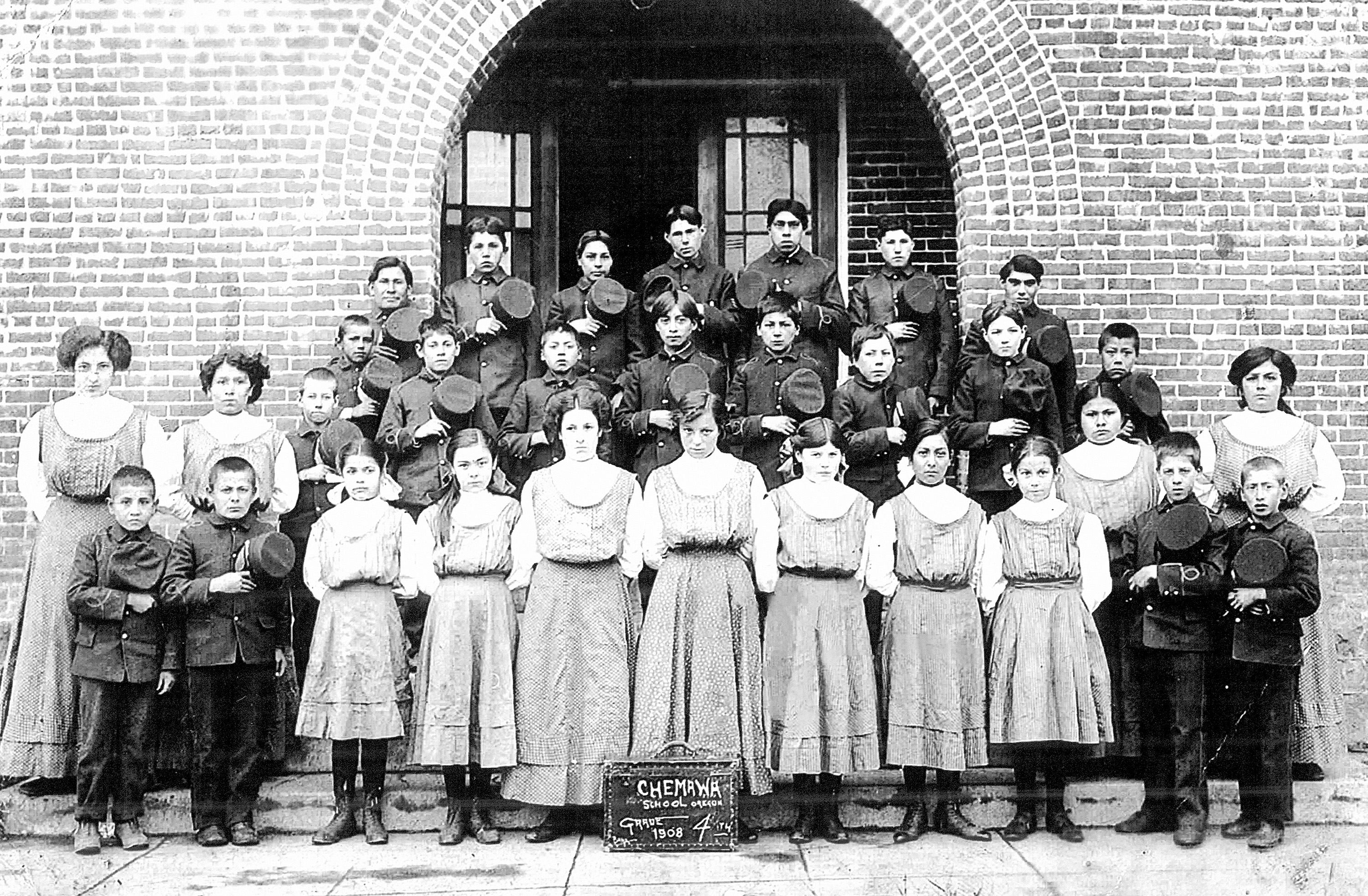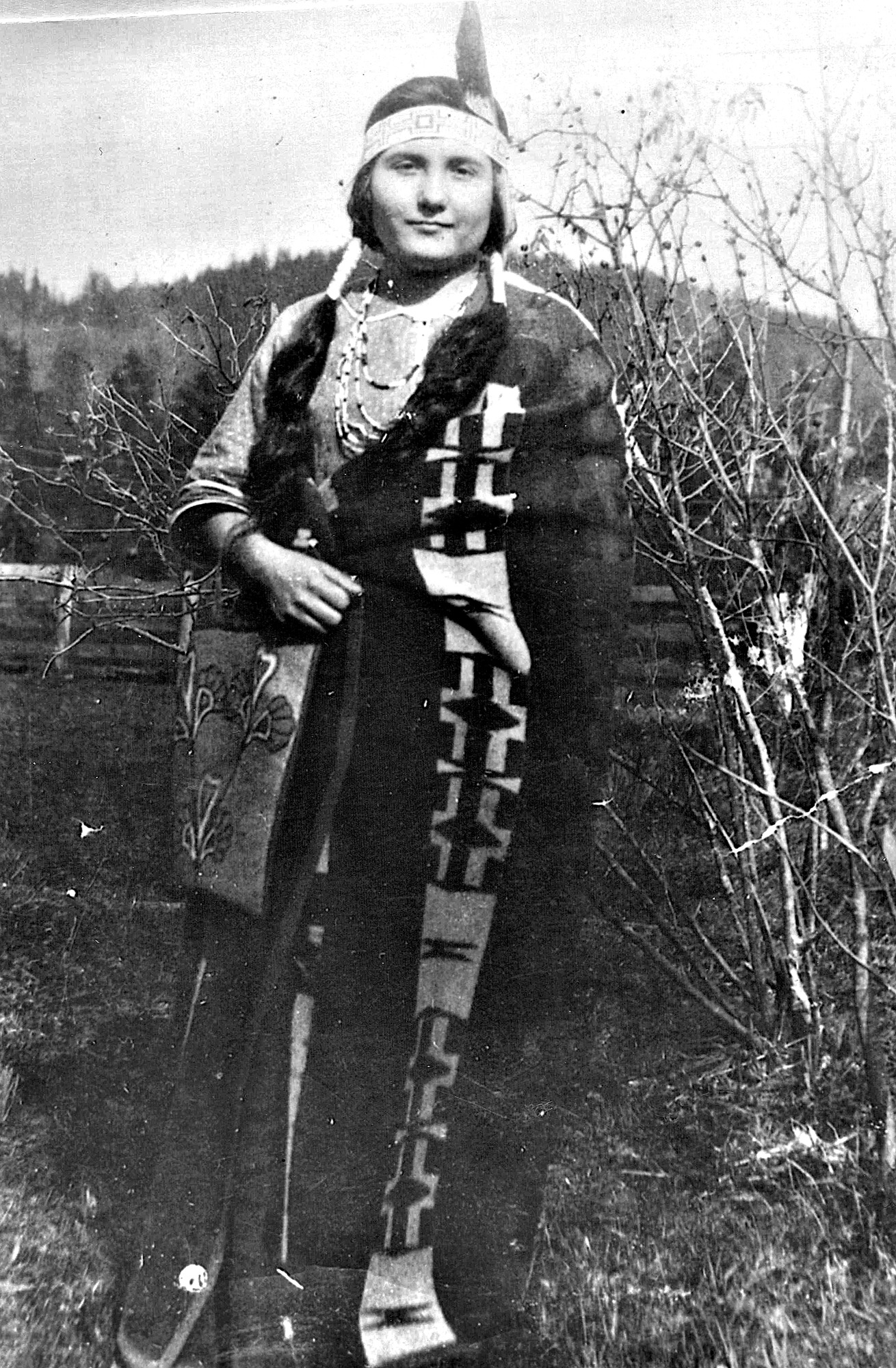Culture
Hidden heritage carries pride and pain

By Nicole Montesano
Smoke Signals staff writer
Blond and blue-eyed, Tribal Elder Bradley Kowing never knew while he was growing up that he was Native American. His grandmother, Cecil Russell, never mentioned it, nor did his parents.
When he finally learned about his heritage in his 30s, Kowing said it gave him a foundation that he welcomed, and he threw himself enthusiastically into helping with the Tribe’s Restoration efforts and its journey to reclaim its land.
He only wishes he could have known about his heritage sooner.
Kowing grew up in Willamina, surrounded by Tribal members, but unaware of his own heritage.
“We were all just children; it didn’t matter if some were a little darker, and some us were blond and blue-eyed,” he said. “As a child, we often visited with aunts – the Leno family, the Mercier family – the godmother to all of us was Berna Larson, Ed Larson’s mother. The Larson family was big in our lives; we visited often out there, often with members of the family more associated with the Native American side. But we didn’t talk about it in that manner and up until the Tribe started working hard to get itself back together and become a federally recognized Tribe again is when everybody in the family worked as hard as they could and dug through archives and stuff,” he said.
But looking back, Kowing believes his aunts and uncles must have known about their Tribal heritage. One of his uncles, Riley Porter, worked as a drug and alcohol counselor for the Tribe.

Tribal Elder Bradley Kowing learned his grandmother, Cecil Rose Russell Porter, spent time at Chemawa Indian School while tracing family history for enrollment after the Tribe was restored in 1983. In 1908, she was taken from her home in Tiller, Ore., by the state of Oregon and sent to the Salem school. (Contributed photos)
Porter, a WWII and Korean War veteran, was a Tribal Elder who later served on several Tribal committees, in addition to his counseling work.
During the efforts to restore the Tribe’s federal recognition, Kowing said, Porter put together some paperwork tracking the family back to the 1800s.
It wasn’t until the newly-restored Tribe reached out to the family with an offer to seek enrollment, that Kowing and his siblings learned of their heritage. By then, Kowing was in his 30s, and he and his brothers were Vietnam War veterans.
With Restoration accomplished, Tribal officials set about re-enrolling as many members as possible, and with the aid of Porter’s genealogy, 65 members of Kowing’s family sought enrollment.
It was during those efforts to trace the family’s history and support enrollment efforts that Kowing learned his grandmother, Cecil Rose Russell, was an Indigenous woman with roots that can be traced back to the earliest appearance of colonialism in the Pacific Northwest. Sent to Chemawa Indian School as a child, it was decades before she mentioned to her grandchildren some of what she had endured there.
The United States government formally terminated the Tribe and several others with the Western Oregon Termination Act in 1954, but the family’s history has been traced to when white and Indigenous fur trappers were settling in the Willamette Valley.
“Part of my family goes all the way back to the Northwest fur trapping country,” Kowing said.
Long before termination, however, the federal government had managed to break the cultural chain by sending Tribal children to abusive boarding schools intended to destroy their ties to their heritage.
Descendants of the early fur trappers settled outside Myrtle Creek around what became the remote town of Tiller, Oregon, in the Umpqua National Forest, according to Kowing. When federal agents began forcibly moving Tribes and small bands to Grand Ronde in the 1850s, Kowing’s ancestors stayed where they were. Cecil was born there in 1900, to Rosalia Quintal Nipissing Russell, who died in childbirth. Rosalia’s children, Lewis, Agnes, and the infant Cecil, were taken in by her brother Sam, and lived with him for some years, Kowing said.
When Cecil was around 8 or 9, Kowing said, someone complained that the children were not being properly cared for. After investigating, the state declared both Cecil and Agnes wards of the state and sent them to Chemawa. Lewis, older than the two girls, evidently was able to remain in his home community, Kowing said.
Despite pleas from both the Quintal and Norwest sides of the family for custody, Agnes and Cecil remained at Chemawa for the next nine years.
Their grandmother was sister to Frank Norwest, Kowing said, and he and his wife Mary were among those asking for custody.
“The Norwest and Quintal family both sent letters to Chemawa and the state of Oregon … to see if she could come live with them, and it was always denied,” he said.
Both girls contracted tuberculosis during their time at the school, and Kowing said that Agnes never came home. In her 20s, he said, she was sent to Ohio as a nurses’ aid, “to work in an infirmary there, and that’s where she passed away,” from tuberculosis.
Cecil, more fortunate than her older sister, remained in Oregon and made a full recovery. Ironically, Kowing said, “all her life she was a two pack a day smoker. My memories of her are always with a cigarette in her hand.”
Cecil graduated from Chemawa at the age of 19 and was finally reunited with her Norwest family members but did not, apparently, reunite with the Quintal side of the family.
“There are pictures of her in regalia, loaned to her by her grandmother, Mary Norwest,” Kowing said.
Cecil married Stephen Porter, who was white, and bore 10 children.
“After she got married and had 10 kids, the Native American part was no longer a part of her life. At that point, she was just a housewife taking care of the kids while grandfather was working at the sawmill,” Kowing said.
Kowing’s mother, Myrtle Porter, “was the middle child,” he said. It’s unclear whether Cecil spoke to her children about their Indigenous heritage.
“The Native American part never came out until the 1980s when Tribe was working to get its status back,” Kowing said. “Maybe my aunts and uncles, and certainly Riley Porter … they must have known about it,” he said. “When we filled out our enrollment papers, the people knew my grandmother and it was their knowledge that allowed us to be enrolled.”
Cecil’s contribution to the enrollment effort indicated that she certainly had not forgotten her past. “She got into an old trunk that she had and pulled out some pictures of the time she was at Chemawa school and a couple pictures of her as a young girl and a couple pictures when she was released from the school and got back with her family at Grand Ronde, Frank and Mary Norwest,” Kowing said.
And, finally, she spoke about life at the boarding school.
“It wasn’t good,” Kowing said. “She talked about things like labor, like they made the kids work in a laundry. They had to go to white families’ homes and do maid type work and that type of thing. She talked about the fact that Native children were not treated very well. Communication with family members was not good. They were not allowed to wear Native American stuff, not allowed to do hair that might be too closely tied to their culture,” he said.
But Kowing said that most of his information came later. “The way that we found out most everything we know about my grandmother is that we were able to get hold of the national archives; they sent us a 65 page file, including letters sent back and forth between families. … my great-great uncle Frank Norwest wanting her to be released back to him at Grand Ronde, because she was the granddaughter of his sister. But the response always that she was going to stay until she was 19 and nothing was going to change that,” he said.
Kowing has tried to understand the motives behind those denials.
“I’m sure at the time that folks at Chemawa and the state of Oregon thought they were doing the right thing, once a child placed at the school to not have much contact with their families, to not revert to their Native American ways,” he said.
He believes it was a cruel way to treat children and families.
“I think one of the reasons she never talked about her childhood, that she never actually talked about her Native American heritage was because of what happened to her during that time,” he said. “In all of the transcripts we received, was nothing there that would lead me to believe she was maltreated. She got wonderful grades … the only part of it that I know affected her, she was never able in that 9- or 10-year time, to have contact other than letters, with her relatives, her aunts and uncles, who wanted her with them.”
Kowing said he was proud to learn of his heritage and discovered he could use his appearance to the Tribe’s advantage.
“I was sent specifically to meetings with county councils and stuff to find out what was going on, because I looked like a white person, so these county councils and members would talk to me the way they wouldn’t to a Native American, and then I would go back and report,” he said.
Still, he said, it would have been good to know sooner.
“I think that the lasting thing was that we missed out on many things in our childhood and early adulthood in our relationships with cousins and things like that, because she didn’t have contact with one side of her family that lived in the Roseburg and Myrtle Creek area. A whole side of our family … I think all of us could have been more proud during our lifetimes instead of just you’re already halfway through your life when you find out about your ancestry,” he said.
“County commissioners were saying, ‘We don’t owe you anything, you don’t deserve to be given land back or anything.’ I think if members of my family had known what their heritage was, it would have been a little different in their life, maybe they would have been a little prouder of their heritage, maybe they would have gone down a different path in their life,” he said.
He is particularly saddened about his older brother, who he said “was probably the most Native American” of the three children.
“He knew what part of his heritage was, but he never could actually identify and in the end, having to do with things in Vietnam that he participated in, he ended his life prematurely,” Kowing said.
His sister has also embraced her heritage, he said, but there is some pain in the issue for his younger brother.
